When relating to a person with Alzheimer's, there are many guidelines to follow. I'm going to discuss five of the most basic ones here: 1) Don't tell them they are wrong about something, 2) Don't argue with them, 3) Don't ask if they remember something, 4) Don't remind them that their spouse, parent or other loved one is dead, and 5) Don't bring up topics that may upset them. Read full article
|
This is very helpful article - I have family members and patients who struggle with this condition. - g
When relating to a person with Alzheimer's, there are many guidelines to follow. I'm going to discuss five of the most basic ones here: 1) Don't tell them they are wrong about something, 2) Don't argue with them, 3) Don't ask if they remember something, 4) Don't remind them that their spouse, parent or other loved one is dead, and 5) Don't bring up topics that may upset them. Read full article
2 Comments
Decadent, Healthy Snacks. Berries, ginger, dried fruit and even dark chocolate. If you have fibromyalgia, these are just some of the delicious foods you can include in your diet. read more
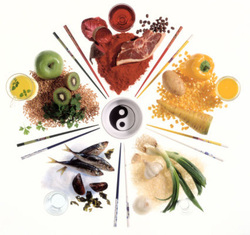 According to ancient Chinese wisdom, diet is one of the most important factors in well being. Certain foods can cause imbalance in the body and should be avoided so as not to create a yin or yang deficiency. Read more - wonderful photos Jet lag occurs when our body's natural daily circadian rhythm becomes disrupted, due to the crossing of time zones during long airplane flights. The symptoms may last from 1 to 10 days, and range from fatigue, insomnia, headache, edema, nausea, and anorexia, to irrational behavior, mental confusion, and disorientation. Children age five and under do not appear to be as affected as adults. Read more
 A Lapse or a Loss? As people age, virtually everyone experiences lapses in memory and attention. But some memory changes are not considered a reflection of normal aging. This list may help distinguish between what is normal aging and what could be more worrisome. http://www.nytimes.com/2013/07/18/health/looking-for-early-signs-of-dementia.html?ref=health&_r=1& I was at the local veterinary clinic this morning working on a Chihuahua. He was a lot smaller than this kitty! 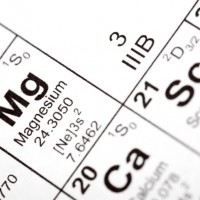 A DEFICIENCY IN THIS CRITICAL nutrient makes you twice as likely to die as other people, according to a study published in The Journal of Intensive Care Medicine.(i) It also accounts for a long list of symptoms and diseases — which are easily helped and often cured by adding this nutrient. In fact, in my practice, this nutrient is one of my secret weapons against illness. Yet up to half of Americans are deficient in this nutrient and don’t know it. I’m talking about magnesium. It is an antidote to stress, the most powerful relaxation mineral available, and it can help improve your sleep. I find it very funny that more doctors aren’t clued in to the benefits of magnesium, because we use it all the time in conventional medicine. But we never stop to think about why or how important it is to our general health or why it helps our bodies function better. I remember using magnesium when I worked in the emergency room. It was a critical “medication” on the crash cart. If someone was dying of a life-threatening arrhythmia (or irregular heart beat), we used intravenous magnesium. If someone was constipated or needed to prepare for colonoscopy, we gave them milk of magnesia or a green bottle of liquid magnesium citrate, which emptied their bowels. If pregnant women came in with pre-term labor, or high blood pressure of pregnancy (pre-eclampsia) or seizures, we gave them continuous high doses of intravenous magnesium. But you don’t have to be in the hospital to benefit from getting more magnesium. You can start taking regular magnesium supplementation today and see results. The Relaxation Mineral Think of magnesium as the relaxation mineral. Anything that is tight, irritable, crampy, and stiff — whether it is a body part or an even a mood — is a sign of magnesium deficiency. This critical mineral is actually responsible for over 300 enzyme reactions and is found in all of your tissues — but mainly in your bones, muscles, and brain. You must have it for your cells to make energy, for many different chemical pumps to work, to stabilize membranes, and to help muscles relax. When was the last time you had a good dose of seaweed, nuts, greens, and beans? If you are like most Americans, your nut consumption mostly comes from peanut butter. That is why the list of conditions that are found related to magnesium deficiency is so long. In fact, there are over 3,500 medical references on magnesium deficiency! Even so, this mineral is mostly ignored because it is not a drug, even though it is MORE powerful than drugs in many cases. That’s why we use it in the hospital for life-threatening and emergency situations like seizures and heart failure. You might be magnesium deficient if you have any of the following symptoms:
In our society, magnesium deficiency is a huge problem. By conservative standards of measurement (blood, or serum, magnesium levels), 65 percent of people admitted to the intensive care unit — and about 15 percent of the general population — have magnesium deficiency. But this seriously underestimates the problem, because a serum magnesium level is the LEAST sensitive way to detect a drop in your total body magnesium level. So rates of magnesium deficiency could be even higher! The reason we are so deficient is simple: Many of us eat a diet that contains practically no magnesium — a highly-processed, refined diet that is based mostly on white flour, meat, and dairy (all of which have no magnesium). When was the last time you had a good dose of sea vegetables (seaweed), nuts, greens, and beans? If you are like most Americans, your nut consumption mostly comes from peanut butter, and mostly in chocolate peanut butter cups. Much of modern life conspires to help us lose what little magnesium we do get in our diet. Magnesium levels are decreased by excess alcohol, salt, coffee, phosphoric acid in colas, profuse sweating, prolonged or intense stress, chronic diarrhea, excessive menstruation, diuretics (water pills), antibiotics and other drugs, and some intestinal parasites. In fact, in one study in Kosovo, people under chronic war stress lost large amounts of magnesium in their urine. This is all further complicated by the fact that magnesium is often poorly absorbed and easily lost from our bodies. To properly absorb magnesium we need a lot of it in our diet, plus enough vitamin B6, vitamin D, and selenium to get the job done. A recent scientific review of magnesium concluded, “It is highly regrettable that the deficiency of such an inexpensive, low-toxicity nutrient results in diseases that cause incalculable suffering and expense throughout the world.” (ii) I couldn’t’ have said it better myself. It is difficult to measure and hard to study, but magnesium deficiency accounts for untold suffering — and is simple to correct. So if you suffer from any of the symptoms I mentioned or have any of the diseases I noted, don’t worry — it is an easy fix!! Here’s how. Stop Draining Your Body of Magnesium
Include the following in your diet as often as you can: Kelp, wheat bran, wheat germ, almonds, cashews, buckwheat, brazil nuts, dulse, filberts, millet, pecans, walnuts, rye, tofu, soy beans, brown rice, figs, dates, collard greens, shrimp, avocado, parsley, beans, barley, dandelion greens, and garlic Take Magnesium Supplements
So if you’re coping with the symptoms here, relax! Magnesium is truly a miracle mineral. It is essential for lifelong vibrant health. Now I’d like to hear from you… Do you suffer from any of the symptoms I’ve mentioned? Do you currently take a magnesium supplement? What results have you noticed? Which of the tips mentioned above do you plan to try? Please share your thoughts by leaving a comment below. To your good health, Mark Hyman, MD References (i) Tong, GM and RK Rude. 2005. Magnesium deficiency in critical illness. J Intensive Care Med 20 (1):3-17. Review. (ii) S. Johnson. 2001. The multifaceted and widespread pathology of magnesium deficiency. Med Hypotheses 56(2): 163-70 |
Gloria Garland
Health and wellness through acupuncture Archives
September 2020
Categories
All
|

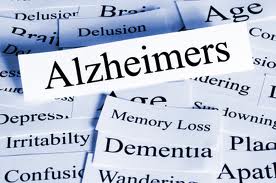

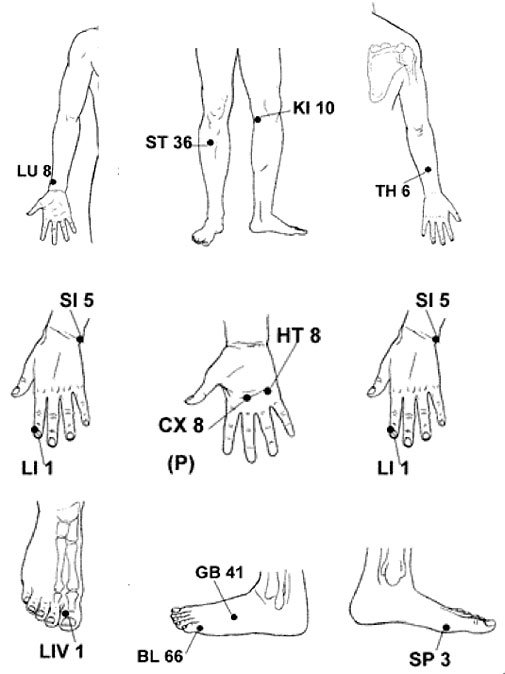

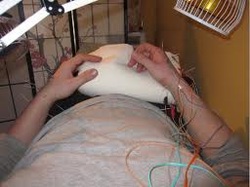
 RSS Feed
RSS Feed
